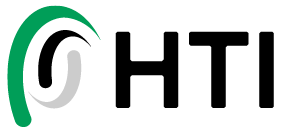How Gen Z Will Change Your Workforce
It’s quite typical of older generations to be skeptical of their descendants. But for what it’s worth, today’s Gen Z are entering the workforce with their unique worldview and capabilities.
‘The Up and Coming Workforce: Generation Z’ distinguished the age bracket as those born between 1995–2010. They are set to take over the workforce, with a report from BridgeWorks putting the number at 61 million Gen Zers in near the future, so it’s about time we start embracing the changes they will bring. Born in the midst of the fourth industrial revolution, experts believe Gen Z holds the key to unlocking new ways of doing business. Before making any hasty assumptions, companies will need to start trying to understand how they can build mutually beneficial relationships with their future Gen Z employees.
Here’s how Gen Z will change your workforce:
Restoring a reasonable work-life balance
Despite clocking in the least number of hours compared to their older colleagues, Gen Zers remain the most dissatisfied with their work-life balance. This is because job satisfaction today has a different definition. It doesn’t necessarily mean having the ability to climb up the corporate ladder by putting in extra hours. Corporate payroll, HR, and tax service ADP found that Gen Z (and millennials) firmly believe that productivity is not measured by time, but by output. As such, flexibility has become a decisive factor in Gen Z’s choice of work.
Companies may now have to adjust their dynamics––which will actually result in great returns on their end. Some organizations are now shortening their workweeks or giving employees the option to do remote work. This lets them maximize their most productive hours, while giving them opportunities to spend their time meaningfully outside of work. Companies will benefit from these alterations, as work output can be boosted while saving money on office utilities, supplies, and maintenance. Restoring the work-life balance through flexibility will also mitigate the potential for burnout while improving everyone’s overall mental health.
Securing finances and future
Employers may need to help ensure the financial stability of Gen Z employees in a different way. In addition to offering good retirement plans, employers should consider educating workers on financial strategies. Financial instability is a growing concern among this generation. Today’s generation do not have the financial stability of their parents and peers, which is why David Rodeck in his article Building a Financial Literacy Program for Employees explains that companies need to include financial literacy as part of the wellness package. He recommends providing self-assessments, offering classes, providing budgeting tools, and hiring a financial counselor.
For example, one thing employers can do is teach their Gen Z employees about their tax refunds and spending options for that money. In a Marcus article on how to use a tax refund they explain that people often use the “free money” they receive from their returns to make feel-good purchases or go on vacation, and Gen Z is likely to do the same. However, employers can educate their employees about savings or investment options. For example, options for retirement savings accounts, opening up high-yield savings accounts, or paying down debts such as student loans. As the youngest generation enters the workforce, it’s the responsibility of companies to provide their employees with good financial education. Especially since they may be unaware of their exact options despite having the desire to begin saving early on.
Human and digital interaction
Gen Zers still see the value of human interaction despite being digital natives. In fact, Forbes has found that 90% of Gen Z claim to want any human element integrated into their work and interactions with their coworkers. Prioritizing welcoming technology and digitizing the workplace to enhance efficiency still runs rampant in the work place. However, employers still need to put a premium on physical interaction. If you decide to adopt remote work options, it’s still advisable to schedule team video calls or actual face-to-face meetings.
It’s vital that this generation sees the importance of getting feedback on their performance and areas for improvement. This will also help improve their output, which consequently affects your organization’s success. Having supportive leadership is what will fuse human and digital interaction seamlessly. Collaboration is key for Gen Z, and this includes getting to know your employees outside the confines of an office. Companies should continue making it a priority to schedule team bonding and get-togethers that allow everyone to let loose, and meet outside of a work environment.
Don’t let generational bias obstruct your potential for growth. It’s all about adaptation. Successful adaptation will create a symbiotic relationship between Gen Zers and their employers––and that’s the secret to your business’s success.
